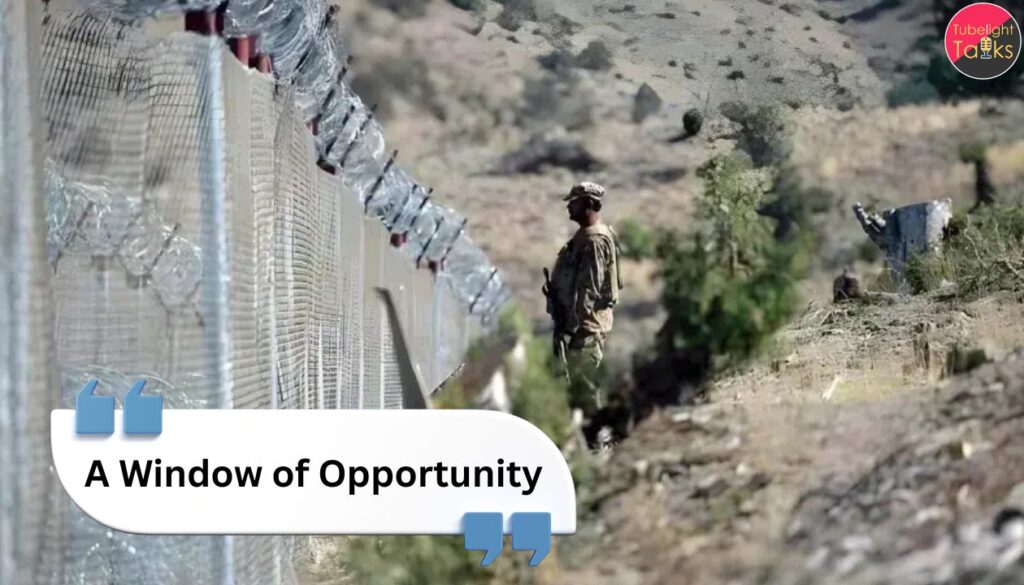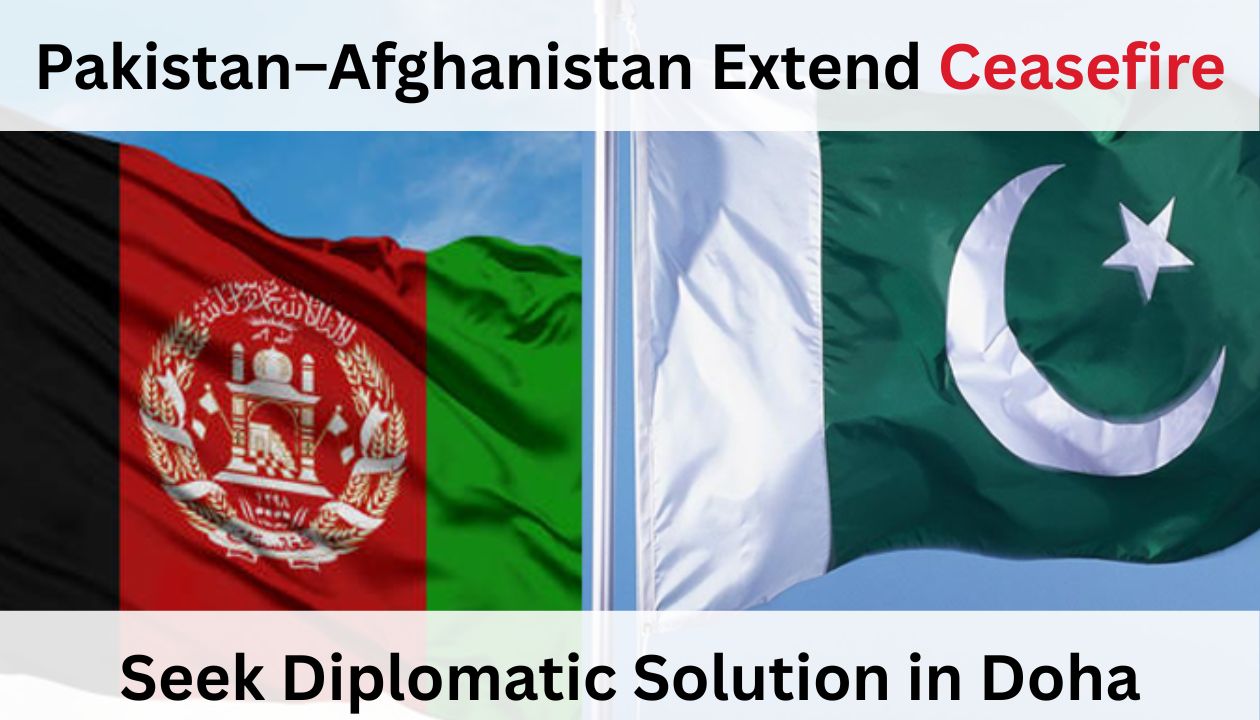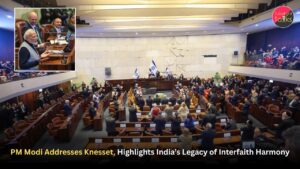Pakistan–Afghanistan Extend Ceasefire, Seek Diplomatic Solution in Doha
The brief 48-hour ceasefire between Pakistan and Afghanistan has been extended, according to diplomatic sources, and formal peace talks are being planned in Doha. This extension follows days of violent cross-border attacks and comes as both countries face mounting international pressure to resolve disputes through dialogue rather than confrontation.
According to Reuters, delegations from both countries are expected to arrive in Doha within days. Qatar, which has historically played a mediation role in Taliban-related negotiations, is likely to host the upcoming dialogue.
Truce Extension: A Window of Opportunity

Strategic Reset Amid Escalation
Officials from Pakistan’s Foreign Ministry stated that the ceasefire has been extended “until further notice,” though it remains fragile and conditional. Taliban authorities in Kabul confirmed their forces would continue observing restraint if Pakistan does the same.
Diplomatic Channels Mobilized
Qatar and other Gulf states have intensified their efforts to mediate. Doha is seen as a neutral ground with past experience managing dialogues involving the Taliban. The U.S., China, and Saudi Arabia have reportedly expressed support for a political solution to prevent further bloodshed.
What’s at Stake in the Talks
Counterterrorism and Border Security
At the heart of Pakistan’s demands is the expulsion or neutralization of TTP (Tehrik-e-Taliban Pakistan) factions reportedly operating from Afghan soil. Kabul, under the Taliban regime, denies direct support but admits challenges in controlling remote regions. Neither Afghan defence ministry nor Pakistani army responded to a request for a comment on the airstrike.
Civilian Protection and Trade Routes
Recent violence displaced hundreds, damaged infrastructure, and shut down key crossings like Torkham and Chaman. Talks aim to implement border coordination mechanisms to prevent civilian casualties and economic disruption.
Long-term Peace Prospects
Diplomats believe that if successful, the Doha negotiations could evolve into a broader border security framework, perhaps even leading to mutual patrol agreements, trade facilitation, and shared intelligence operations.
Also Read: Pakistan Suspends Trade and Closes Airspace
Regional and International Response
Observers from the UN, OIC, and Shanghai Cooperation Organization have urged both countries to de-escalate and uphold international humanitarian norms. Human rights groups continue to raise concerns over civilian casualties and access to displaced populations.
Spiritual Wisdom Guiding Paths to Peace
In times of deep unrest, the teachings of Sant Rampal Ji Maharaj offer a meaningful reminder: true peace arises from inner discipline, fairness, and purposeful dialogue. The extended ceasefire and upcoming talks signal a hopeful shift — where restraint replaces retaliation, and conversation replaces conflict. This harmony between courage and compassion mirrors the essence of Satgyan — a balanced path to lasting peace.
Road Ahead: Fragile Hope or New Beginning?
While the truce extension and proposed talks mark a welcome shift, tensions remain just beneath the surface. The success of these talks depends on trust-building, verifiable commitments, and ongoing restraint by all sides.
The coming weeks will test whether diplomacy can achieve what weapons could not — a sustainable peace between two nations long caught in the crossfire of history, extremism, and mistrust.
FAQs: Pakistan–Afghanistan Ceasefire Extension
Q1. Has the 48-hour ceasefire officially been extended?
Yes, both sides have agreed to extend the ceasefire, though no specific end date has been announced.
Q2. Where will peace talks be held?
Doha, Qatar has been selected as the venue for upcoming direct talks.
Q3. What is the main goal of the talks?
To de-escalate tensions, resolve border security issues, and discuss militant activity in the region.
Q4. Who is mediating the talks?
Qatar is playing a primary mediation role, with support from regional powers.
Q5. Are international organizations involved?
Groups like the UN and OIC have welcomed the development and are monitoring the situation closely.











Discussion (0)